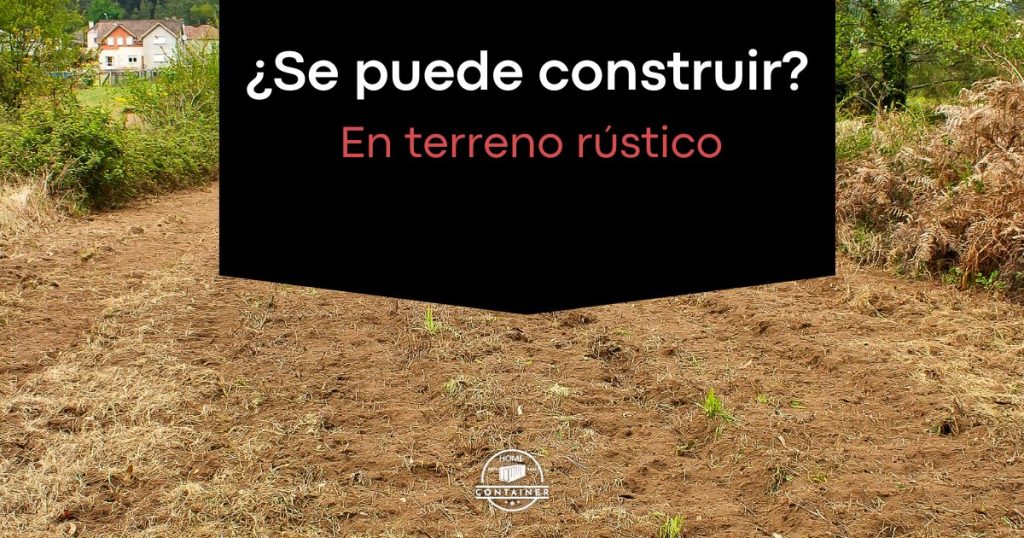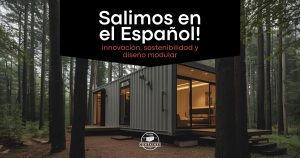Having rustic land brings a common question: Can I build on it? A house, a pool, a container? This is a common doubt both in rural areas and scattered urbanizations, and the answer is not straightforward. The regulations vary depending on the autonomous community, the type of land, and the intended use of the construction.
In this article, we will address all the real questions with up-to-date legal information. We will analyze what can be built on rustic land, how much, under which conditions, and what penalties may apply if you act without a permit. We will also look at real and legal alternatives if you are thinking about installing a wooden house, a mobile home, or a shipping container. All of this without unnecessary jargon and with clear examples.
What can be built on rustic land?
What is usually allowed is the construction of agricultural warehouses, also known as tool sheds, as long as they are associated with an active agricultural operation. Building stables or livestock sheds, wells, irrigation ponds, or fences is also allowed. However, all of these need to be well justified: documentation that proves the necessity of these constructions for the activity being carried out on the land is required.
How much can be built on rustic land?
There is no single percentage for all of Spain, but many autonomous communities set clear limits. In the Community of Valencia, for example, construction is only allowed up to 2% of the total land area. This means that if you have a plot of 5000 square meters, you could build a maximum of 100 square meters. In Andalusia, this limitation can range from 1% to 5%, depending on the municipality and the type of activity linked to the construction. Still, even if you meet the square meter limit, you will need a technical project signed by an architect and a building permit from the local town hall.
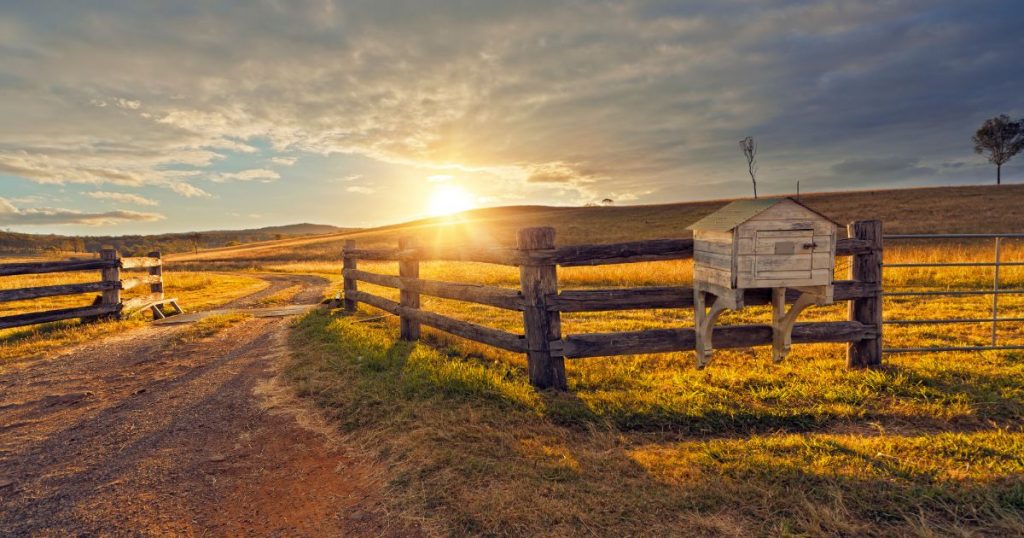
Building on rustic land without a permit: real risks
Building any kind of structure on rustic land without the proper permits is considered an urban infraction. Penalties can be severe. Fines can exceed €30,000, especially if there is a connection to utilities like water or electricity without authorization. Additionally, the town hall can issue an order for demolition, which you will have to cover. On top of that, you won’t be able to register the construction, obtain a certificate of habitability, or contract basic services. You also won’t be able to sell, mortgage, or legally rent the property with the irregular construction.
With these basic points clear, let’s look at how this regulation varies by autonomous community. In the next section, we will analyze in detail what can and cannot be built on rustic land in places like the Community of Valencia, Andalusia, Catalonia, Castilla-La Mancha, or Cantabria, among others.
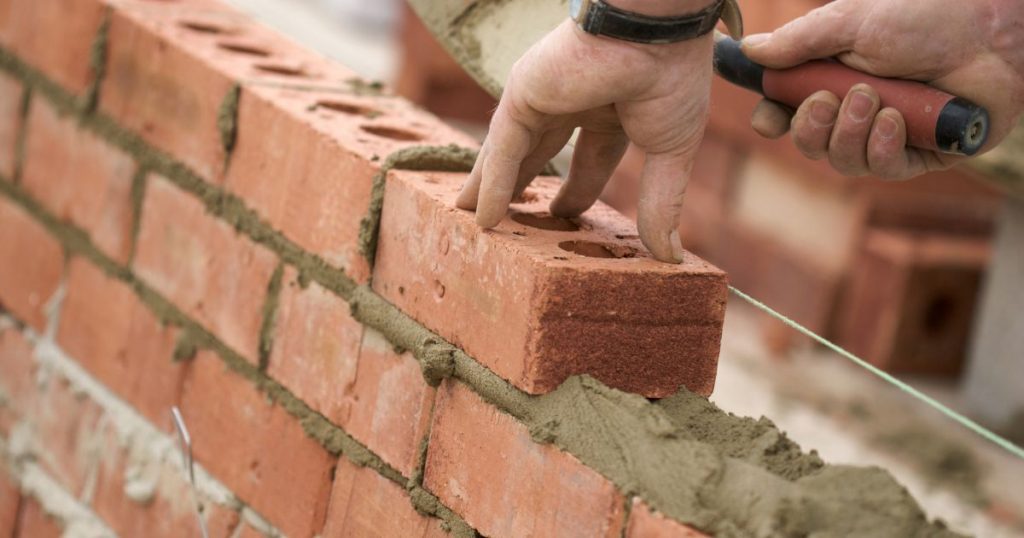
What does the law say about building on rustic land in different autonomous communities?
Although there is a basic national regulation for rustic land, each autonomous community has its own conditions, restrictions, and exceptions. This is especially important if you are thinking about building a wooden house, prefabricated house, mobile home, or installing a habitable container.
We will now show you how it works in the Community of Valencia, Andalusia, and other regions with increasing searches.
Community of Valencia: Can you build on rustic land?
In the Community of Valencia, Law 5/2014 on Territorial Organization establishes that non-buildable land can only accommodate constructions if they are linked to agricultural, livestock, forestry, or public utility operations.
At least 10,000 m² of rustic land is needed to build an agricultural or tool shed. Single-family homes are not allowed unless there are strong justifications, always with a complete technical project.
It is not considered legal to live in a mobile home, prefabricated house, or container unless it is authorized as a residence. Many users seek this believing that “buildable rustic land” gives them free rein, but just because it is buildable does not mean you can build without an approved partial plan and active urban permits.
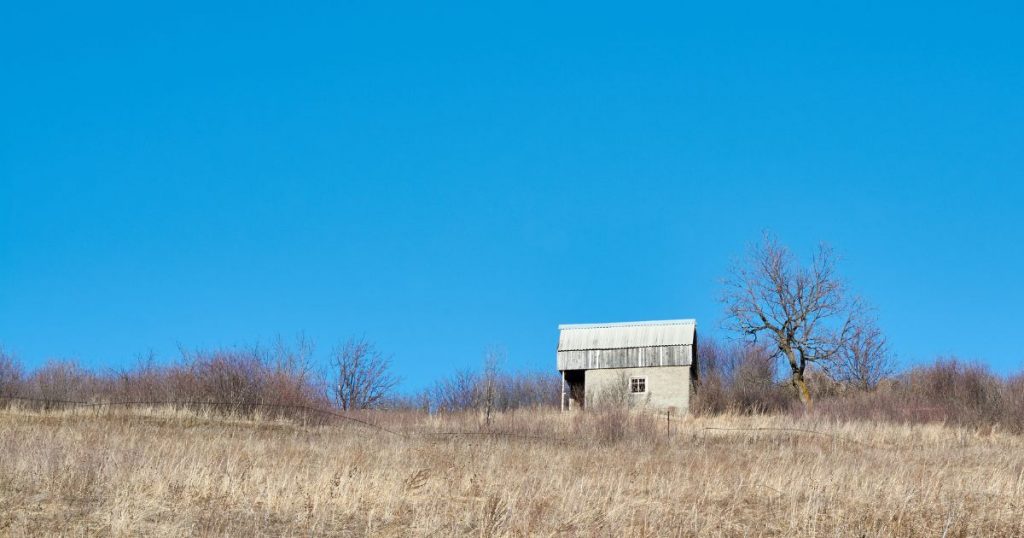
Andalusia: Can you build on rustic land?
In Andalusia, according to the General Regulations of the LOUA (Law of Urban Planning of Andalusia), building houses on non-buildable land is generally prohibited. Only agricultural or livestock constructions are allowed with justification.
In some Andalusian provinces such as Málaga or Almería, there are more flexible municipalities that allow houses on rustic land if there is access to services and residency is proven. However, even in these cases, mobile homes, prefabricated houses, or containers also require permits, as the law considers them houses if there is an intent to reside in them.
Catalonia, Castilla-La Mancha, Cantabria, Castilla y León, Navarra…
In these communities, the situation is similar. Building a permanent residence on rustic land is not allowed except for exceptions related to agricultural activity, heritage, or public utility.
In Catalonia, for example, the Urban Planning Law requires integrated projects and urban permits even for tool sheds. In Castilla-La Mancha and Navarra, there are stricter limitations, especially on protected rustic land.
What if the land is “rustic buildable”?
This term is often searched by users, but it is not an official legal concept. It’s more accurate to distinguish between three types of land:
- Non-buildable rustic land: no residential construction is allowed.
- Buildable rustic land: construction is allowed only if the town hall has approved a partial plan, executed it, and received it.
- Urban land: this is the only type where construction is allowed without restrictions, as long as building rules and use are respected.
Even if there are buildable rustic lands that still appear rural, you cannot legally build anything on them unless the plan is approved and developed.
Houses, pools, warehouses, and more: What can be legally built on rustic land?
When someone buys rustic land, the first question is: Can I build a house here? A pool? A stable, warehouse, or tool shed?
The short answer is that it depends on the intended use and the type of building. Most regional laws do not allow the construction of houses on rustic land except for exceptions justified by agricultural, livestock, or public interest activities. But there are important nuances depending on the type of construction.
Can you build a house on rustic land?
You cannot build a home for living on rustic land unless certain conditions are met. The house must be intended for the accommodation of an agricultural or livestock worker, and this activity must be justified. An exceptional permit from the town hall or the autonomous community is also required, as well as meeting minimum surface, access, and service requirements.
Can you build a prefabricated or wooden house on rustic land?
A prefabricated or wooden house is still considered a construction under legal terms. If it has a foundation and is intended for residential use, it requires the same permits as a conventional home. If it doesn’t have a foundation, as with some mobile homes, the law may consider it a temporary installation, but it cannot be lived in legally without a certificate of habitability.
Can you build a pool on rustic land?
Although it seems like a minor construction, a pool requires a building permit, technical project, and justification of use. On rustic land, a pool is only legal if linked to an agricultural property with an authorized home, or if it’s processed as an auxiliary irrigation structure, which only happens in specific cases.
Can I build a warehouse, stable, or tool shed?
These types of constructions are allowed on rustic land, but under conditions. They must be linked to real agricultural, forestry, or livestock activity. Additionally, documentation (such as registration for agricultural self-employment, an active farm, etc.) must be provided to prove that it is not a disguised home.
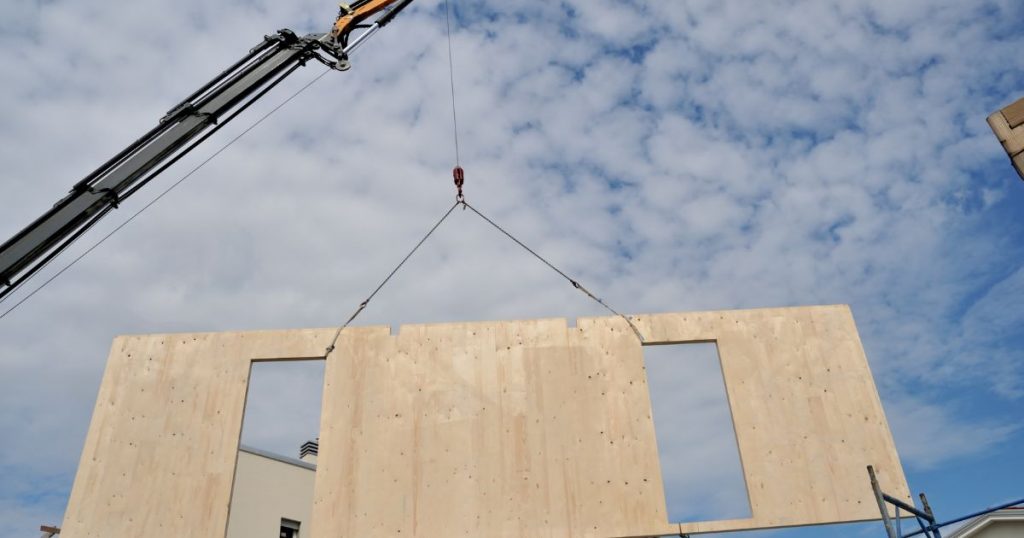
What about a porch or an extension to an existing structure?
If you already have a legal building, such as an authorized tool shed, you may apply for an extension or add a porch. However, this will only be legal if it’s not considered an attempt to create a hidden home, and if the municipal building regulations on building coefficients are respected.
In summary:
- Conventional house: not legal on rustic land, except for agricultural use or exceptional authorization.
- Prefabricated or wooden house: not legal if used for living. It could only be legal if it’s a removable shed with no residential use.
- Mobile home or habitable container: not legal even without a foundation. Requires permits.
- Tool shed or agricultural warehouse: allowed if it is justified for real agricultural use.
- Livestock stable or warehouse: allowed under the same condition as above.
- Pool: not allowed unless there are very specific exceptions linked to agriculture.
- Porch or extension: depends on whether a legal building already exists and whether the building code is respected.
What if I put something that “is not a house”? Mobile homes, containers, and prefabricated houses
Here is where many property owners think they’ve found the legal loophole: “If I don’t build anything, if what I put doesn’t have a foundation… can I live there?”
The law does not determine this based on the format, but on the use. If the use is residential, it is considered a home, whether it is anchored to the ground or not, whether it has wheels or is detachable.
Can you live in a shipping container?
Legally, no. Even though it has no foundation and is transportable, if it has a bathroom, kitchen, electricity, or furniture for living purposes, the law interprets it as a residence. Placing one with the intention of living in it, without the proper permits, is an urban infraction.
And a mobile home?
It also does not escape the regulations. Even though it’s not fixed and doesn’t have a foundation, if it is used as a residence, it requires an urban permit. Some municipalities tolerate its presence if it is not connected to services and is used sporadically, but that does not make it legal. It simply won’t be pursued as long as there are no complaints or visible extended use.
And what about a prefabricated or wooden house?
The material does not change the legal interpretation. Whether it is wooden or modular, a construction intended for residence needs a technical project, permit, and compliance with urban regulations. It doesn’t matter if it’s installed in a single day or if it looks like a cabin: if it has a bathroom, electricity, and is lived in, it is considered a home legally.
What can be done with a container?
It can be used as a tool shed, agricultural storage, office, or auxiliary module, as long as it is not intended for living, doesn’t have permanent connections, and complies with local requirements.
And if it’s installed without a permit?
That’s where the biggest problems arise. Fines for placing a container without a permit can range from €6,000 to over €30,000, especially if there are connections to utilities or evidence of habitability. In many town halls, besides the economic fine, an order for the immediate removal of the module or even demolition will be issued if no action is taken in time.
What if I already have a house or container installed on rustic land?
Many property owners don’t ask these questions until they’ve already placed something on the land: a mobile home, a converted container, a prefabricated home, or even a building without a permit. And then come the hardest questions to answer.
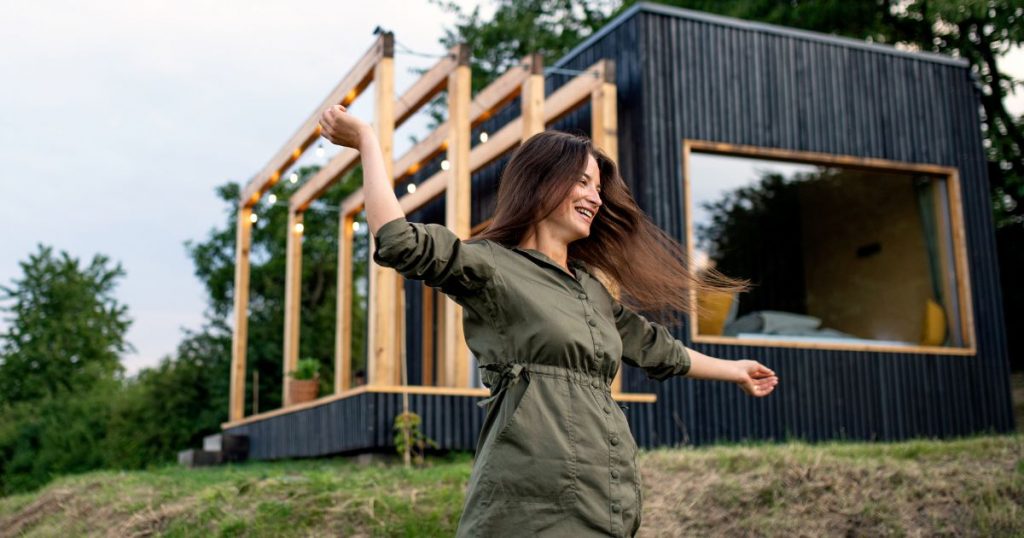
Can a house on rustic land be legalized?
Yes, but only in very specific cases. Legalization, also known as urban regularization, depends on several key factors. It may be authorized if the construction is old and has not been sanctioned, does not cause environmental impact, and meets minimal technical requirements.
Fines for placing a container or building without a permit
This is one of the most delicate topics. Placing a container or house without a permit on rustic land can cost between €5,000 and €30,000, depending on the autonomous community, the use given to the structure, and if there are environmental or urban planning impacts.
Can I change the use of my rustic land to build?
Changing the use of rustic land is legally possible, but in practice, it is extremely difficult. For it to happen, the town hall must include that land in a modification of the General Urban Planning Plan. And that only happens if it is justified that urbanization in the area is of public interest.
What to do if I already have something built?
If you have already installed a structure on rustic land, the first step is to check the urban planning situation of the plot with the town hall. Request a compatibility report to find out if there is any room for legalization.
Turn your land into an opportunity with our containers
Even though the regulations for rustic land are strict, you can still make your plot legal and practical. Shipping containers, used as warehouses, tool sheds, or workspaces, are a safe and versatile solution.
At Home Container, we adapt each project to your needs and the current regulations so that you get the most out of your land without legal risks. Check out our containers and discover how to transform your land into a useful and well-utilized space.

